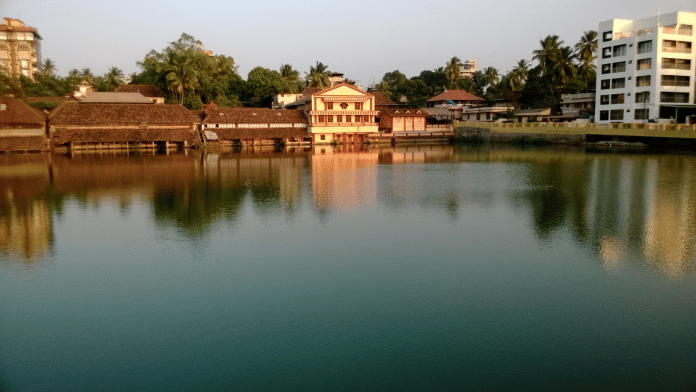Thank you dear subscribers, we are overwhelmed with your response.
Your Turn is a unique section from ThePrint featuring points of view from its subscribers. If you are a subscriber, have a point of view, please send it to us. If not, do subscribe here: https://theprint.in/subscribe/
India’s first comprehensive state-level ESG (Environment, Social, Governance) investment policy was passed by the state of Kerala in October 2025. This was a sign that the state is moving from ideas to concrete actions to make sustainability a part of its growth path. This policy declaration is a milestone moment, as it aims to channelize future investments towards companies and businesses that are efficiently governed, environmentally savvy, and socially responsible.
Some significant provisions are:
Newly approved projects that adhere to ESG compliance will receive 100% reimbursement for capital investment over a five-year period. A 10% discount on the fixed capital investment with a maximum ceiling of ₹50 lakh is made available to encourage adoption. The Kerala State Industrial Development Corporation (KSIDC) offers low-interest loans for machinery and technologies that meet ESG standards.
Preference for State procurement: Local ESG-compliant firms to receive a 20% margin preference in government tenders. This requires ESG reporting to follow national standards (such as BRSR) and international standards (like GRI and SASB). The policy will last five years (until 2030), making it a medium-term commitment, with KSIDC serving as the nodal agency for execution.
Kerala’s integration of ESG into industrial and investment policy signals a structural shift: growth that leads to environmental deprivation or social discrimination will no longer be encouraged.
Implementation and Institutional Anchors
KSIDC is the key facilitator, responsible for delivering incentives, lending support, and keeping an eye on compliance. The Department of Industries has launched a unified branding initiative called “K-brand.” Its design is marked by a bright green color palette echoing the state’s goal of “Nature, People, Industry.” This is a reflection of both symbolic and administrative commitment to sustainability.
However, the policy’s viability is dependent on verification methods, third-party audits, grievance remedies, and clear eligibility and disqualification guidelines.
Recent Project Highlights and Sectoral Moves: Carbon-Neutral Goshree Islands.
The Goshree project, a carbon-neutral project to be launched in Kochi, is one of the visible uses of ESG norms in the state. The project is helmed by the Goshree Islands Development Authority (GIDA) and the Haritha Keralam Mission and covers 19 islands in the region. The project consists of greenhouse gas surveys and a systematic coordination and monitoring mechanism, along with net-zero infrastructure planning.
In an effort to promote renewable energy, the Kerala State Electricity Board (KSEB) has decided to remove all application and registration fees for rooftop solar (RTS) units under the national “PM Surya Ghar: Muft Bijli Yojana” (PMSG) scheme. Previously, applicants charged ₹1,000 + GST were partially refunded after installation, but the upfront fee is now removed (pending regulatory approval).
Additional charges—load augmentation, meter testing, and net meter installation—will be included in the first post-installation statement. This action reduces financial barriers to solar adoption and encourages more homes and small businesses to participate, which aligns with ESG’s environmental mission.
Repercussions of the 2025 Oil Spill
The container vessel MSC Elsa 3 capsized off the coast of Kerala in May 2025, carrying dangerous goods such as petroleum and furnace oil. While the majority of the oil slick was managed before it reached the shoreline, the incident sparked environmental concerns, coastal monitoring, and calls for accountability and compensation to fishing communities. ESG emphasizes the importance of environmental risk assessment, disaster response capacity, and rigorous oversight of maritime and coastal operations.
The Way forward
As Kerala redefines the ESG boundary at the subnational level, the coming months will see how theory translates into practice. If the carbon-neutral Goshree project becomes a reality (roads, infrastructure, electricity, garbage), it will provide a concrete example.
The scale of reimbursement and subsidy incentives (100% capital reimbursement, for example) creates concerns regarding eligibility, auditing, misuse, and ensuring compliance. Further, Kerala’s revenue shortfall has nearly doubled, and debt burdens are increasing. Such limitations may restrict the capacity to sustain big incentives or subsidies. Another challenge is coordinating among departments (energy, industry, the environment, and municipal governments). The success of a policy is significantly dependent on capacity building and accountability mechanisms. Without adequate compensation and inclusion of communities, even “green” projects may face opposition from people.
Businesses and industries will require time to restructure processes, implement cleaner technology, and retrain employees; support systems will be critical. National-level ESG disclosure standards, SEBI modifications, and supply-chain regulations may alter incentives or obligations for Kerala enterprises. Likewise, the adoption of rooftop solar and verifiable reductions in conflict events will serve as early indicators.
The ESG shift in Kerala should do more than just give the state “green prestige.” It should also make the air cleaner, people’s lives better, institutions more open, and the state more resilient. The goal is bold, and the test will be to keep doing it.
——————————————————————————————————
About the authors:
Anusreeta Dutta is a columnist and climate researcher with prior experience in political research and ESG analysis.
Tanmay Mathews Kottuppalli is a political research analyst.
These pieces are being published as they have been received – they have not been edited/fact-checked by ThePrint.


